Indians are known for their warmth of heart and hospitality, shown towards their guests on several social and religious occasions, the wedding being the foremost among them. The special characteristics of Indians are reflected in their wedding cards, too, mainly through the Indian wedding invitation wordings, which are different from that of the wedding cards used in other countries, both in language and in spirit.
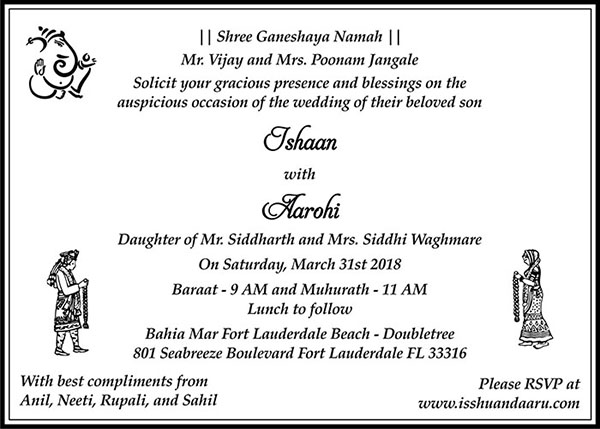
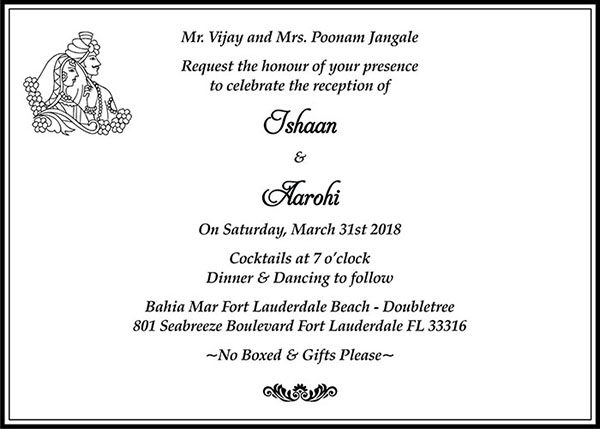
Indian Wedding Invitation Wordings
Few aspects of the wording in Indian wedding cards
Indian wedding invitation wordings are known for their distinctive elements that reflect the country's rich cultural heritage and traditions. These unique elements contribute to the beauty and charm of Indian wedding invitations. Some of the key elements include:
1. A Religious Touch in the Beginning - All Indian wedding cards usually start with the mention of any divine name or symbol, irrespective of religious beliefs. Sometimes, a short phrase or a line from a religious text or a holy book of that religion may be mentioned, seeking divine blessings for the future life of the new couple.
2. Warm Requests to Join the Wedding - The wording of the Indian invitation letter are filled with the love and respect of the wedding couple and the members of their families for the guests who will receive these invitation cards. Usually, the guests are humbly and earnestly requested to attend the wedding to wish the marrying couple the best wishes for their married life since it is Indian culture to seek elders' blessings before starting on a new phase of life.
3. Information About the Wedding Couple - According to Indian culture, a great deal of stress is given to the family background of the bride and the groom. Hence, the ancestral roots and the parentage of both bride and groom are generally mentioned in the wedding invitation letter; so the guests can have an idea about this new relationship. Earlier, not much used to be written about the personal qualification of the bride or groom, but now sometimes people prefer to mention that too if they think it worth informing their honoured guests.
4. Necessary Details for Joining The Wedding - Lastly, the wedding cards should be ended by providing all the necessary information, which will help the guests find the wedding venue easily, as nowadays, most marriages are held in specially hired wedding halls in the nearby locality. Apart from the exact date and time of the wedding, the proper address and the landmark of that venue are mentioned in bold letters at the end of the invitation letter. In many Indian households, the actual wedding ceremony is preceded and followed by several other religious and social rituals, which require the involvement of the guests. Thus, the guests should also be informed about the dates and times of these rituals so that they can join and enjoy those functions.
According to the Indian tradition, wedding invitations are usually written in the name of the eldest member of the family of the bride or the groom. Normally, the words of these invitation letters are carefully chosen to safeguard the prestige of both the families of the bride and the groom before the guests. These wordings are generally printed in clearly visible colours, with mild designs around the page, for suitable decoration.
Indian Wedding Invitation Format
Let's dive into the fantastic world of Indian wedding invitation wording! It's not just a piece of paper with information, but a reflection of the rich cultural customs, traditions, and emotions surrounding a wedding celebration. So, let's break down the typical Indian wedding invitation format together!
First, we usually start with a religious invocation or a verse seeking blessings from the divine. It sets the tone and varies depending on the couple's religious background. For instance, Hindu wedding cards might kick things off with a Sanskrit mantra or a prayer to Lord Ganesha, while Muslim wedding cards could begin with a beautiful Quranic verse.
Now, let's introduce the stars of the show—the couple! Their names take centre stage in decorative fonts or with artistic embellishments. It's all about making them shine! Sometimes, their family names or titles are added to honour their lineage and show respect to both sides.
Next up is the host line. If you are writing wedding card matter in English, you might come across phrases like "Mr. and Mrs. [Family Name] cordially invite you" or the more inclusive "Together with their families, [Bride's Family Name] and [Groom's Family Name] request the pleasure of your company." Fancy, right? Note that India wedding card format in English is very different from wedding card matter in Hindi.
Of course, we can't forget the juicy details! The wording format continues with the date, time, and venue of the wedding ceremony. It's like giving your guests a treasure map. The date usually comes with the day, month, and year, and the time specifies the time zone because we don't want anyone showing up late for the party! And for easy navigation, we throw in the venue details—location, address, and sometimes even the city or a nearby landmark.
Moreover, Indian weddings are known for their multiple ceremonies and events, so we make sure to mention those too. Pre-wedding functions like the Sangeet, Mehndi, or Haldi ceremonies are included. And let's not forget about the post-wedding rituals like the reception or the Walima for our Muslim friends. It's all about keeping guests in the loop so they can plan their participation accordingly.
Now, let's talk about RSVP. We want to make it super easy for guests to respond and confirm their attendance or regrets. So, we include RSVP details, like a separate response card or contact information, such as a phone number or email address. That way, guests can let the hosts know if they'll be joining in on the festivities.
Last but not least, we wrap things up with blessings, good wishes, and closing lines. We want to shower the couple with warmth and love! So, we might say something like, "May their union be blessed with love, joy, and prosperity", or "We request the honour of your presence to grace this auspicious occasion." It's all about sending positive vibes their way!
Remember, the Indian wedding invitation format can vary based on cultural traditions, regional customs, and personal preferences. So, it's crucial to choose the right language, tone, and verses that align with the couple's background and the overall theme of the wedding. By following this format, we can beautifully capture the spirit of love, tradition, and celebration associated with Indian weddings, inviting guests to join in the joyous occasion.
So, what do you think? Ready to rock those Indian wedding invitation wordings with style? You can check out various Wedding Card Wording templates on our website and choose the one you like the best. They are fully customisable, so that you have full control over the final wedding card.
Types of Indian Wedding Invitations
Indian weddings offer various invitation styles, catering to various preferences, themes, and budgets. Here are some popular types of Indian wedding invitations:
- Traditional Scrolls: Traditional scroll invitations, also known as Farman or Shahi Patra, are reminiscent of ancient royal announcements. They are made of rich, decorative paper rolled into a scroll format, often secured with an ornate ribbon or tassel. Scrolls provide a regal touch and are favoured for formal weddings.
- Boxed Invitations: Boxed or Royal wedding invitations are a popular choice for Indian weddings. They typically consist of an intricately designed box or case that houses the wedding invitation and other accompanying cards, such as RSVP cards, itinerary cards, and additional inserts. These invitations offer a luxurious and elegant presentation.
- Laser-Cut Invitations: Laser-cut invitations have gained popularity in recent years. They feature intricate patterns or designs cut into the cardstock using laser technology. These designs can range from delicate floral patterns to intricate filigree, creating a stunning visual effect.
- Digital Invitations: In the digital age, digital wedding invitations have become a convenient and eco-friendly option. They can be designed creatively with animated elements, music, and interactive features. Digital invitations are easy to distribute and allow for personalized customization.
Conclusion
Indian wedding invitation wordings are an essential element of Indian weddings, representing the cultural heritage, traditions, and emotions associated with the auspicious occasion. From the unique elements, such as traditional language, vibrant colours, and religious symbolism, to the significance and purpose of the invitations themselves, Indian wedding invitations have a special place in the hearts of the couple and their families. The various types of Indian wedding invitations cater to different preferences. In contrast, the carefully crafted Indian wedding card matter adds a personal touch and invites guests to the joyous celebration. Ultimately, Indian wedding invitation wordings beautifully encapsulate the essence of love, family, and tradition at the heart of Indian weddings.








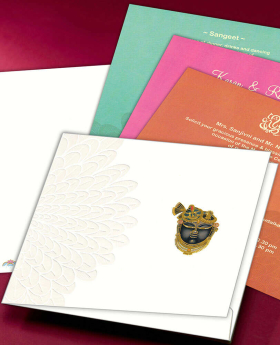
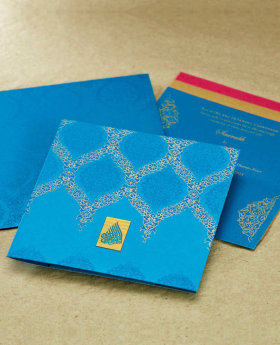
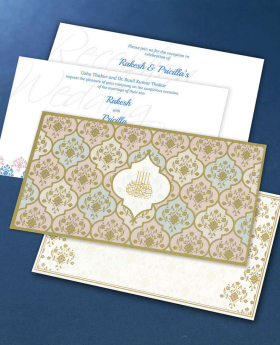


The information below is required for social login
Sign In
Create New Account